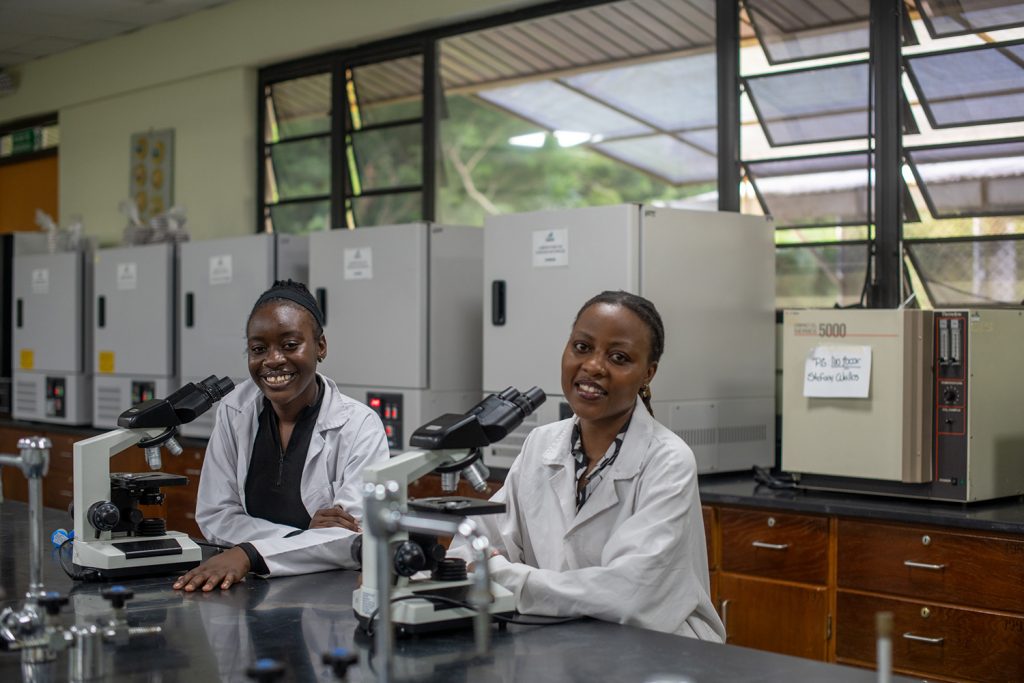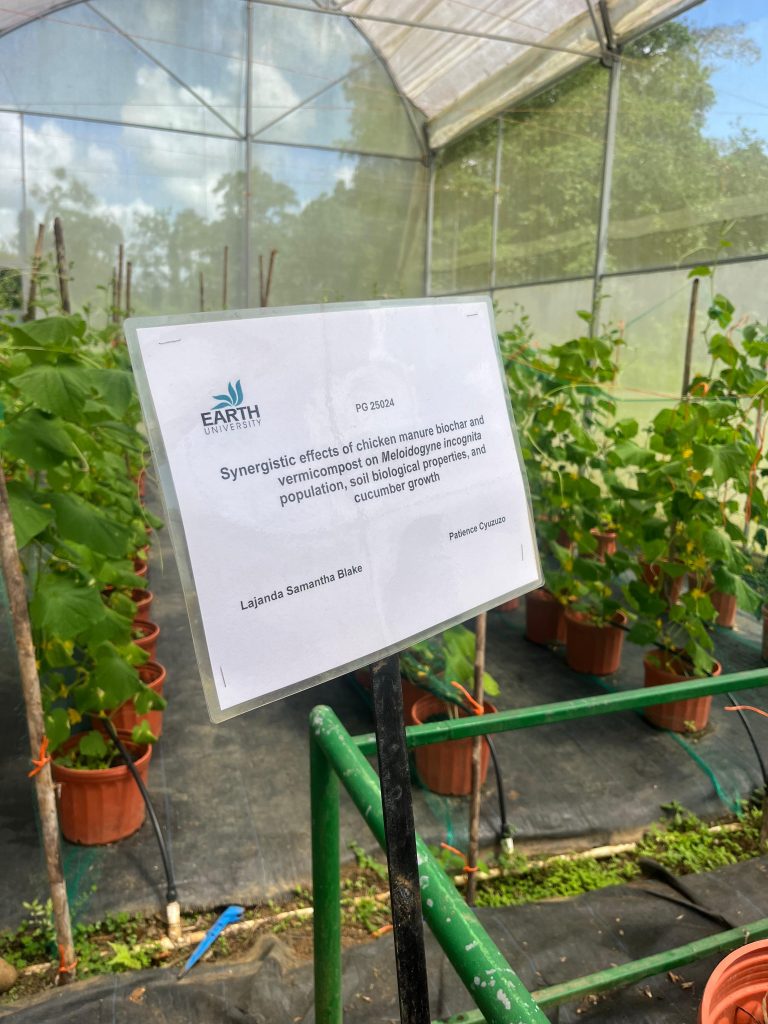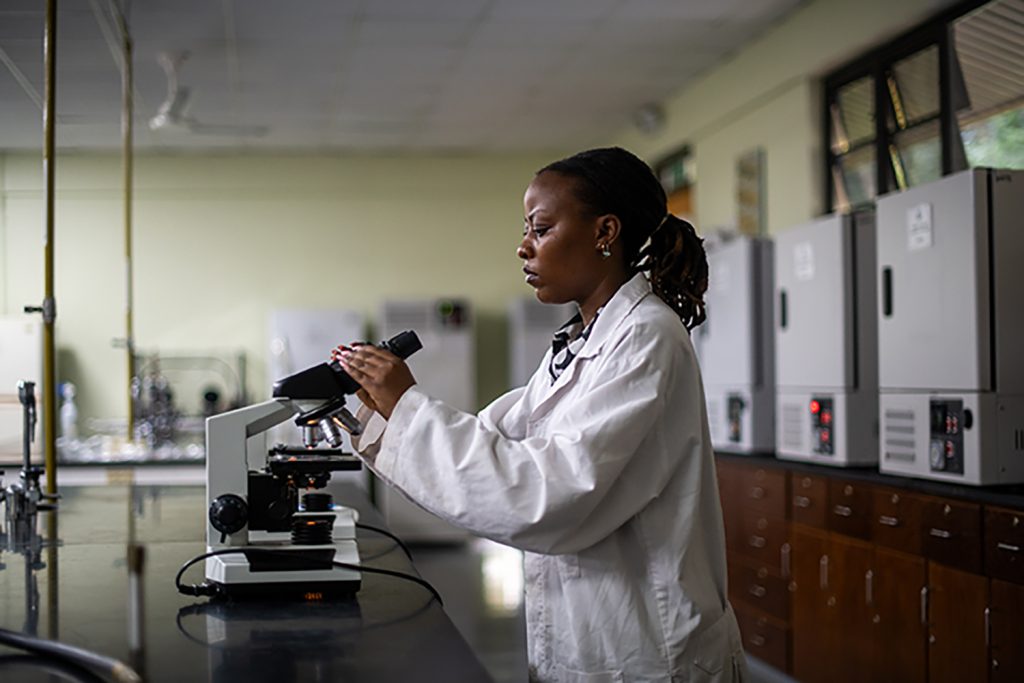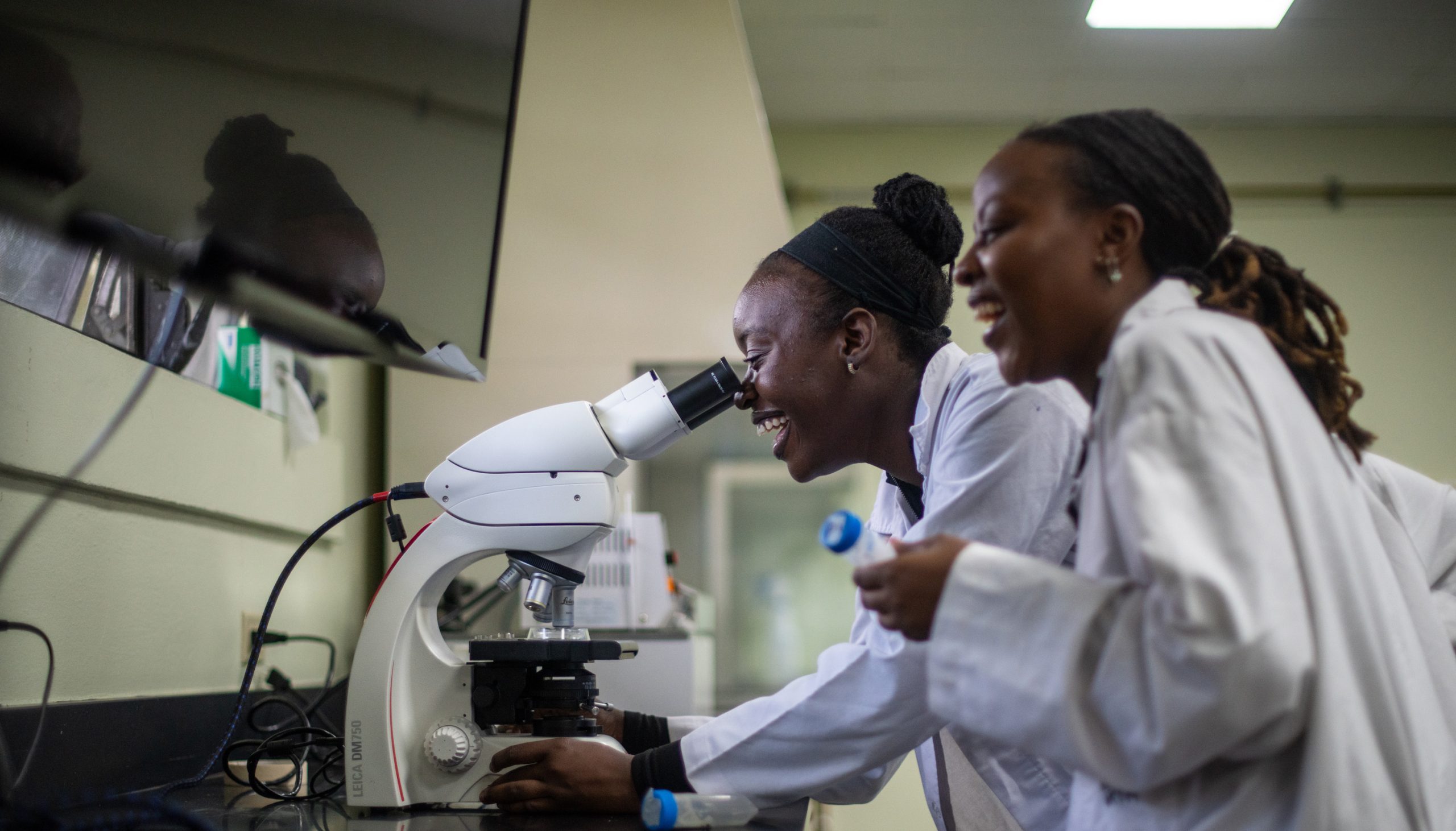Neither Lajanda Blake (Class of 2025, Jamaica) nor Patience Cyuzuzo (Class of 2025, Rwanda) ever imagined their career paths would shift so much after completing their third-year Internship. In 2024, they both traveled to the United States, where they discovered new passions that today drive their Graduation Project (GP). Something changed within them—or perhaps was strengthened—when they found themselves wearing lab coats and gloves. They were working in laboratories where they studied tiny organisms that though invisible to the human eye have a major impact on global food systems.
Lajanda completed her Internship at the University of Florida. At first, she thought her time there would focus on entomology, but before leaving she learned that her mentor, Dr. Johan Desaeger, was a nematology expert. This was when Lajanda’s interest shifted, and she decided to prepare herself to study nematodes—microscopic, worm-like organisms found in nearly all environments. While some nematodes are harmless, or even beneficial, there are species that are plant parasites and represent one of the most serious threats to agriculture. These species attack plant roots, limit water and nutrient absorption, and can drastically reduce yields of staple crops.

Patience, a Mastercard Foundation Scholar at EARTH University, carried out her Internship at Alabama A&M University, where she worked in soil sciences. There, she learned that nematodes not only damage crops but are also a key indicator of soil health: when harmful species proliferate, the entire underground biological balance is disrupted. By merging her interest in soil microbiology with Lajanda’s passion for nematology, the idea for a joint project was born—one that could provide sustainable solutions directly applicable in agriculture.
Today, their Graduation Project aims to evaluate the effect of poultry-litter biochar and vermicompost on cucumber plant growth. Biochar is a form of charcoal obtained from organic waste—in this case, chicken manure—applied to soil to improve structure, retain nutrients, and boost microbial activity. Vermicompost, on the other hand, is an organic fertilizer produced through earthworms, rich in nutrients and beneficial microorganisms that help plants grow healthier and more resilient.

Lajanda arrived in Florida with this idea already in mind. “Even before starting the Internship, I wanted to evaluate the effects of biochar on nematodes. However, we couldn’t do that, because there was no way to produce pure biochar there. Dr. Johan didn’t recommend buying a commercial biochar with other additives, so we decided to do the research at EARTH.” She spent countless hours in the lab. During her Internship she was often found working in the early mornings observing nematode behavior. Today, alongside Patience, she continues the process at EARTH’s Natural Sciences Laboratory, where they have all the tools and space they need to develop their research.
Lajanda and Patience are also studying the impact on nematode control and on biological indicators such as soil respiration. To make this possible, they have the support of the University of Costa Rica, where they obtained the nematode strains required for their trials, thanks to Jaime Honorato, professor of Pest Management at EARTH. The project has been an opportunity not only to grow as researchers but also to build professional connections with other institutions.
Early results show that combining biochar and vermicompost in high doses enhances plant growth, while vermicompost alone may help control plant-parasitic nematodes. This finding is especially significant as it offers natural alternatives to the intensive use of chemical pesticides, which have long caused environmental and health problems.

For Lajanda and Patience, the impact goes beyond science: they also seek to open doors for more women challenging gender norms in agriculture. “Where I come from, if a woman says she studies agriculture, people laugh. Land belongs to men, and women are only seen as laborers. But by being here conducting research, we are paving the way and encouraging other women not to be afraid to say: I can do this too,” shares Patience.
Their goal is to take the research beyond the lab. “We want to do applied science. If we discover something that works, we want to go directly to farmers and share it,” says Lajanda. Through their work, they are not only confronting a silent pest that threatens global food systems but also demonstrating how science led by women can transform agriculture toward a fairer, more sustainable future.
